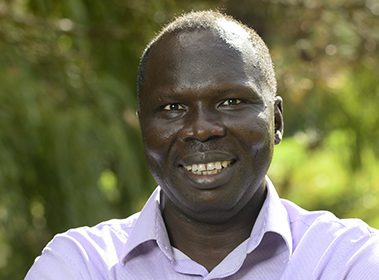
Member Voices: Reporting Back from CLC and NUCAUT Conventions
In May, FSA Director-at-Large William Oching represented our union at conferences held by the National Union of Canadian Association of University Teachers (NUCAUT) and Canadian Labour Congress (CLC). NUCAUT allows faculty unions, organized through local and provincial organizations, to have a greater voice at the federal level. NUCAUT delegates indeed prioritized faculty associations becoming more involved in the broader labour movement—especially necessary given recent post-secondary job action in Canada. Although the NUCAUT delegation of 25 at the Canadian Labour Congress convention was one of the smaller groups, several delegates, including William, spoke on behalf of post-secondary educators. FSA Member Engagement Officer Matt Greaves asked* William a few questions about his work at the spring conferences.
FSA: Can you give a little background? What is NUCAUT all about and what was your experience like at the May NUCAUT conference?
William Oching: I have been involved with the FSA since 2016–almost 7 years–but this is my first-time representing the union at a convention/conference. NUCAUT is the National Union of the Canadian Association of University Teachers, representing post-secondary faculty associations at the Canadian Labour Congress. It focuses on the interests of academic staff, opposes harassment and discrimination of any sort, and strives to build and unify the labour movement by working with labour councils, provincial federations, and other national unions affiliated with the CLC.
FSA: You spoke about education on the floor of the CLC convention. Can you talk more about why you chose to talk to attendees?
WO: Yes, I spoke in support of the action plan that calls for investment in skills training and workforce development, which is the core business of BCIT and many other post-secondary institutions. It is vitally important to tackle the challenges of climate change as workers transition to the green economy, which also means supporting exploiting critical minerals and metals necessary for that change. Exploitation of those minerals/metals requires skilled workers that post-secondary institutions like BCIT can train to meet industry needs. This can’t be achieved without serious, sustainable funding from various levels of government: investment in literacy, numeracy, skills training, vocational training, and quality lifelong learning. Institutions should not rely on international students to support their budgets, faculty needs adequate pay and benefits to attract and retain talented workers, students need support too, and finally more investing in R&D/new technologies.
FSA: The NUCAUT delegation was a small group at CLC. How did you feel about that?
WO: I feel that NUCAUT was not fully represented and yet the organization plays an important role in the economic growth of the country. CLC is a forum to push our agenda but with small representation, NUCAUT may be less effective in advocating for its members at the national level.
FSA: What did you learn about being in a post-secondary union from the conferences?
WO: I learned that some post-secondary institutions are not part of NUCAUT, which requires more members and representation on various committees and groups to be properly represented at the national level.
FSA: Coming out of the conferences, are there opportunities for our members to get involved?
WO: Yes. You can apply to join committees and working groups, attend CLC, BCFED, or NUCAUT conferences as a delegate, serve on local councils, or draft resolutions on education, working conditions, human rights… among other things.
FSA: Is there anything else that you think that the membership should know from the conferences?
WO: The voice of members was heard, and we have good leadership representing us at the national level. To advocate for our sector more effectively, we need an education committee to be formed or reinstated to bring matters concerning education at CLC, and more FSA members need to volunteer to sit on committees and working groups.
Bio: William Oching began his career at BCIT in 2015 as a faculty member in the Mining and Mineral Exploration Department. With significant industry experience, William has developed and instructed several mining engineering courses while also serving as a Program Quality Assurance Coordinator. William has served as a Tech Rep for many years and is in his second term on the FSA’s Board of Directors. In his free time, William serves as a Board member for community and non-profit organizations like the Burnaby Girls Soccer Club and World University Service of Canada.
*Edited for clarity and content
Leave a reply →